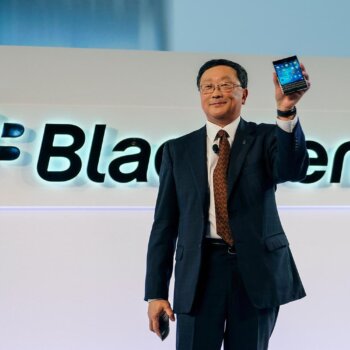If nothing else, the global chip shortage has exposed the automotive industry’s Groundhog Day: a sector reliant on very old semiconductors that are unprofitable for chipmakers to produce, meaning they have to build special factories with technologies that they no longer use in their cutting-edge processes.
So while the consumer electronics industry will soon be over the chip crisis, the automotive industry remains dependent on chipmakers producing obsolete designs that no one else uses. The result of still seeing cars as a product where the important thing is the mechanics rather than the electronics.
But the advent of the electric motor, simple and reliable, maintenance-free, the industry lost its way. It introduced electronics as extras for which it could charge a little more, while continuing to focus on improving the performance of internal combustion engines. If this meant poisoning half the world with gasoline additives, so what?
When it was shown that electric motors, despite their simplicity, were not only faster and more efficient than their diesel and petrol counterparts, the rule book had changed. Cars became computers or smartphones on wheels. This brought electronics to the forefront, a step that, for the time being, almost no traditional manufacturer, with the exception of Porsche, has been able to take. Most people are still surprised when they open the hood or trunk of an electric car and see no motor. Instead, what matters are the sensors, the processor, the memory or the connectivity, as with any electronic device.
The problem traditional car companies now face is that they don’t know how to market EVs, because for too long they have ridiculed them, spreading lies about them and focusing on factors that are no longer important. The transition to hybrids, which never made sense and led carmakers to sell Frankenstein monsters made from with the worst of both worlds, distracted them and so they missed the digital train. Now, suddenly, they’re trying to adjust to the reality that electric vehicles through a dealer network makes no sense, and the dealers, who are well aware of this, are not happy. What’s more, most of the big carmakers are still a decade behind when it comes to EV technology.
Now, overnight, they are in a hurry and everything is very strategic: GM has changed its logo to look more like a smartphone app and hired Malcolm Gladwell to tell us we’re facing a technological tipping point; Nissan is to invest $17.6 billion to develop electric vehicles over the next five years; Ford is rushing to triple the production capacity of its electric Mustang Mach E. But for the most part, they’re still going round in circles: instead of rethinking vehicles from the ground up as electric, they’re doing what they did before, only with an electric motor. Big screens? Must be some kind of fad, so let’s stick them in. Processors? Why won’t the ones we used before work? Software? That takes care of itself, doesn’t it? When it comes to gaining privileged access to materials such as microprocessors, latest-generation batteries or their components, the hyper-fragmented value chains of the conventional automotive industry are a disaster, and no company could consider vertical integration at this point. Selling without dealers? Are you crazy?
The car industry has finally been forced to accept that petrol and diesel engines are not only obsolete but seen by more and more people as responsible for many of the world’s problems. The problem is that making EVs is not so easy. And that’s without getting into the question of replacement, which will not be one-to-one: the future lies not in owning an electric vehicle, but in using the vehicle as a service, particularly as they become autonomous.
In other words, 2022 is going to be a make or break year for carmakers. Sadly, many haven’t even realized it yet.





























